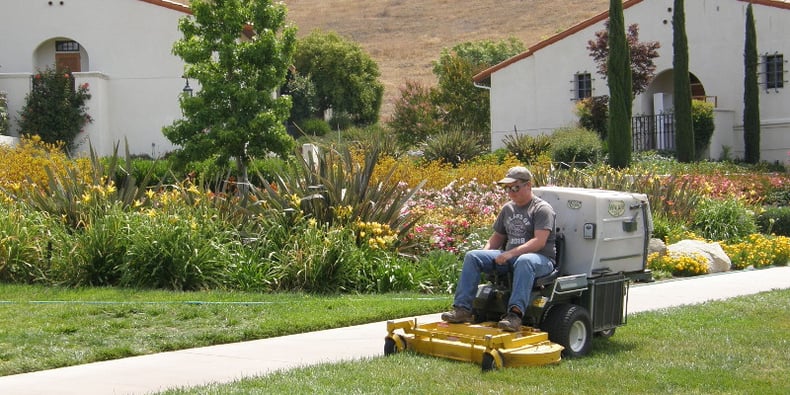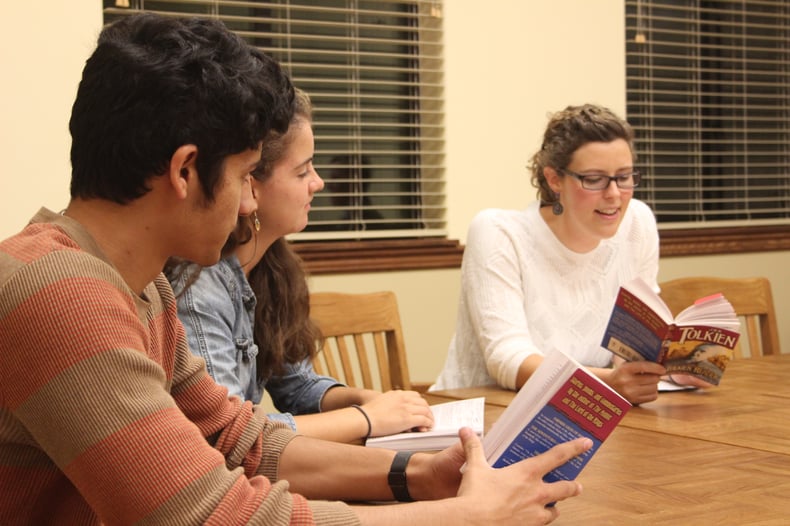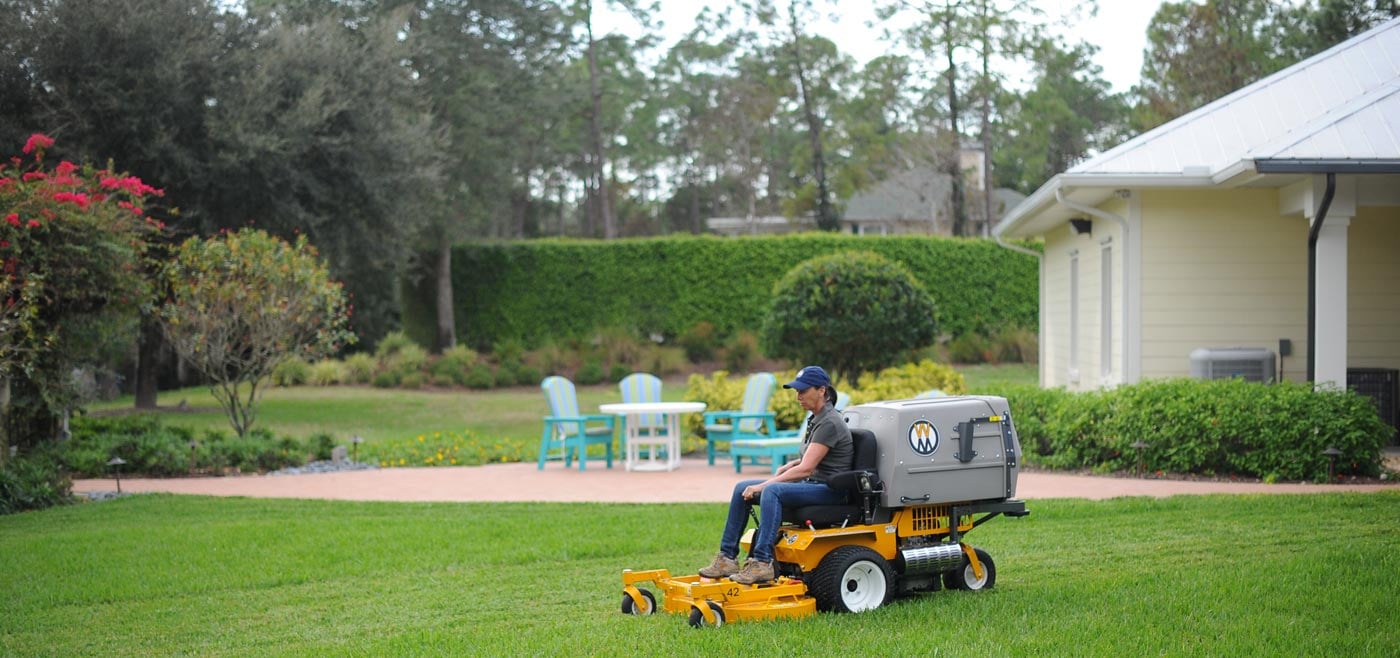Located in Santa Paula, CA, Thomas Aquinas College is a private Catholic Liberal Arts School. Nestled in a valley neighboring California’s San Padres National Forest, the college features a 132-acre campus, 10 acres of which are manicured year-round, and an enrollment of 375 students. This is not a typical venue for a Walker Talk story. Yet the mowers and the school complement one another.
The story is a bit unusual for several reasons, not the least of which is how the grounds are maintained. A beautiful landscape, highlighted by buildings representative of Spanish Revival architecture, is cared for almost exclusively by students participating in the school’s Service Scholarship program. The program commits students to work 13 hours a week during the school year. In addition to maintaining the landscape, they help in the kitchen, assist full-time staff in the library and business office, and work elsewhere on campus as needed. The latter also includes contributing to the upkeep of the school’s fleet of automobiles and trucks, along with its mowing and maintenance equipment.
Dave Gaston, landscape supervisor, relies on 42 students to maintain the grounds. “In my department, students mow, garden, prune, fertilize, spray for pests, renovate gardens, and maintain our extensive irrigation system, among other duties,” says Gaston. “They do essentially everything relating to the outdoors. I don’t do any of the work myself. I just train, and we only bring in outside professionals for bigger jobs we can’t handle here.”

Most students rarely have any horticulture or mowing experience, Gaston relates. Training is an ongoing challenge because they move from one job to another as they go through school. “But the students are all fast learners and have excellent morals and strong work ethics,” he adds quickly. “In addition to learning about horticulture, the work experience teaches time management and gives students a reflection of the real world. Some have even pursued a career in horticulture after graduation.”
Mowing Year-Round
Each semester, three or four students are assigned to the mowing crews. John Vineyard, head of the automotive maintenance department, oversees their initial instruction, which includes training on two Walker Mowers, one of which has an impressive 15,000 hours on it. Another Walker Mower, also with 15,000 hours, sits in reserve, waiting for a new paint job.
“I teach them how to start the mower, stop it, and make turns without harming the turf,” Vineyard explains. “I also direct them to give the mowers a walk-around before mowing to check the tires and overall give the machine a visual inspection.”
Vineyard also shows them how to engage the blades at a lower RPM to reduce stress on mower parts, and instructs them to be aware of anything unusual that occurs while mowing. “I want them to listen for any unordinary sounds or changes in how it mows or steers. It’s important to take care of potential problems before they become issues,” Vineyard emphasizes.
Speaking of which, he notes that the Walker Mowers, including the oldest with mega hours, have never experienced any serious engine problems. The mowers all operate with 48-inch GHS decks. Of the two older models, one features a 20-hp air-cooled engine while the other is powered by a 25-hp water-cooled engine. A third mower, the newest, has a 23-hp air-cooled engine. As Vineyard relates, two mowers operate four hours a day, five days a week, all year long— unless it rains.

“It’s mostly about maintenance,” he emphasizes when quizzed about mower longevity. “I follow the book and grease everything that needs greasing, lubricate with WD-40 just about anywhere two pieces of metal touch, and routinely change the engine oil, oil filter and air filter.”
Maintenance, Vineyard adds, is only part of the longevity story. The other part is operation and being aware of how the mower is communicating to you.
A Classic Education
The college, founded in 1971, is unusual in a couple of other ways. At a time when too many college graduates find themselves $30,000 to $40,000 or more in debt, the school holds their debt ceiling to no more than $18,000. It does this without state or federal funds, relying instead on help from alumni and other donors and benefactors. Approximately 75 percent of students receive some form of financial aid. The Service Scholarship program is an important part of this financial commitment.
In the course of study, students neither purchase textbooks and other secondary reading material nor do they attend large lecture-hall classes. In fact, Thomas Aquinas College is only one of two schools in the country where curriculum is based exclusively around learning from the Great Books, the original works of Western civilization thinkers. Classes are small. The faculty-to-student ratio 1:11. Instead of lecturing, faculty members engage students in active discussions about the texts they’ve read.

By helping students seek out what is true, good and beautiful within a small, close-knit community, this college is preserving a classical education. Part of this education extends to the landscape.
“There wasn’t much grass here, only weeds when I took the job in 1998,” landscape supervisor Gaston recalls. When asked about his responsibilities, college administrators told him that whatever he did, they wanted it to be beautiful. He emphasizes that the Walker Mowers have played an important role in that charge. Just like its emphasis on preserving a classic education, the college has been very good at preserving the mowers, too.





 Site Search
Site Search



